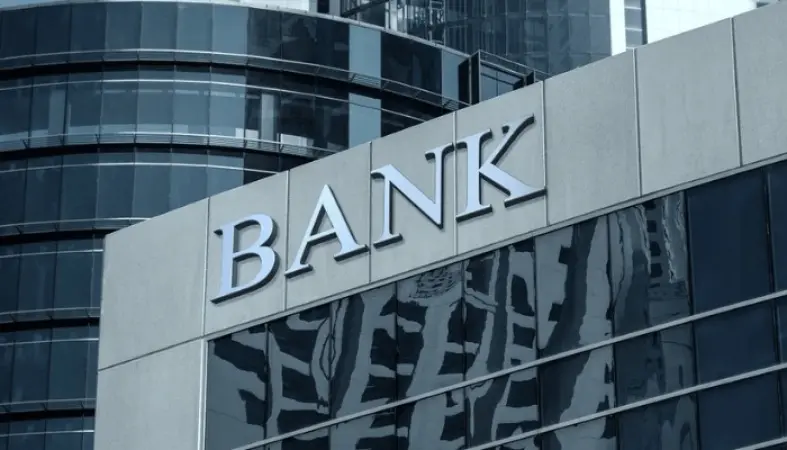Nigerian bank customers may need to prepare for increased service interruptions as banks across the country fast-track the migration of their core banking systems to more secure and cost-effective software.
Many financial institutions have already initiated this process, but it’s expected to intensify in the coming weeks, potentially leading to frequent transaction delays and unexpected outages
President of the Bank Customers Association of Nigeria (BCAN) and former Registrar of the Chartered Institute of Bankers of Nigeria (CIBN), Dr. Uju Ogubunka, expressed frustration over the limited communication from banks regarding these disruptions.
In an interview with THISDAY, he pointed out that banks should have better informed customers about the potential impact of these upgrades.
Ogubunka said, “The ultimate aim is to improve the system and services to customers, but whether all these upgrades should happen simultaneously is debatable, as it’s causing major disruptions. Additionally, many banks failed to give enough notice to their customers, leaving them unprepared.”
Dr. Ogubunka emphasized the need for more effective communication, particularly for those customers less familiar with digital banking.
“Not every customer is technology-compliant. Banks need to take time to explain these changes and even provide some training to help customers adjust. The lack of preparation is making things worse,” he added.
A banking industry insider, speaking anonymously, confirmed that further disruptions are likely as more banks prepare to migrate.
The insider explained that the shift is motivated by rising operational costs and heightened security concerns.
“The banks pay in dollars for every account held, along with the cost of additional services. With the naira’s decline, these expenses have become unsustainable. That is why banks are looking for cheaper alternatives, whether local or foreign,” the source revealed.
Sterling Bank was one of the first to experience service issues after moving from T24 to SEABaaS, a locally developed platform, in September.
Customers experienced days of limited access to services during this migration.
Similarly, GTBank recently announced its switch from Jordanian/UK-based ICS Financial Services software to Finacle, an Indian platform.
In another case, Zenith Bank suffered a major outage on October 1 while shifting from UK-based Phoenix by Finastra to Oracle’s Flexcube.
Access Bank, which had initially planned its own migration, has since postponed the transition and promised to announce a new date for the update.
Security concerns have also been a driving factor behind these migrations. The insider mentioned that cyberattacks targeting banks are on the rise, pushing institutions to adopt more robust security measures through system upgrades.
“There has been a rise in cyberattacks targeting financial institutions. Banks need systems that are not only cost-effective but also secure. This migration trend is largely about safeguarding against those threats,” the source said.
However, the simultaneous system upgrades by several banks remain a concern for many, as it compounds the impact on customer access and transaction flow.
Dr. Ogubunka and other industry experts have called for a more strategic, customer-oriented approach to avoid further strain.
“Yes, the goal is to improve service quality, but banks should not rush the process and neglect the needs of their customers. Without adequate preparation and communication, we will continue to see more disruptions, and the frustrations will only deepen,” Ogubunka said.
This situation with Nigerian banks highlights a critical phase in their evolution toward more secure and efficient systems, but it certainly poses challenges for customers. Here are some key takeaways from the article:
- Core System Migration: Many banks are transitioning to new core banking systems to improve security and reduce costs. While this is a necessary evolution, the urgency of the migrations is leading to significant service disruptions.
- Customer Communication: There’s a clear gap in communication from banks regarding the changes. Dr. Uju Ogubunka’s remarks emphasize the need for better information dissemination to customers, particularly those less familiar with digital banking. Effective communication is essential to mitigate customer frustrations and prepare them for disruptions.
- Increased Service Interruptions: Customers may experience delays and outages as banks upgrade their systems. Notable examples include Sterling Bank, GTBank, and Zenith Bank, which faced significant issues during their transitions.
- Cost and Security Factors: The rising operational costs, especially due to the naira’s decline, have motivated banks to seek more affordable solutions. Additionally, the increase in cyberattacks is pushing institutions to adopt stronger security measures.
- Need for Strategic Approach: Experts are calling for a more strategic, customer-focused approach to these migrations. This includes ensuring adequate preparation, training, and communication to lessen the impact on customers.
- Customer Education: The emphasis on educating customers about changes and how to navigate new systems is crucial. This can help in achieving a smoother transition and maintaining customer trust.
As these changes unfold, it will be interesting to see how banks respond to the feedback and whether they implement more customer-centric strategies to ease the migration process.
Click here to join our Telegram Channel

